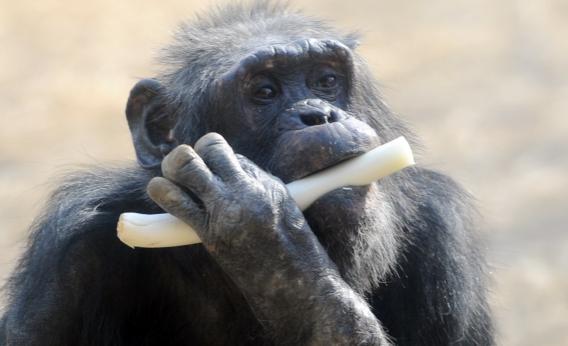The U.S. Fish and Wildlife service announced today a proposal to protect captive chimpanzees under the Endangered Species Act, something the government already does for wild chimps.
The United States is currently the only country in the industrialized world that hasn’t extended endangered or protected status to captive chimps, which means they are easily subjected to invasive medical research or used for entertainment purposes. Put another way, they can be “bought and sold online for personal use like a pair of new sneakers,” or “leased to medical labs, where they are poked, prodded and injected,” in the words of the Washington Post.
The new proposal is a response to a push to get man’s closest genetic neighbor on the endangered list by groups such as the Humane Society of the United States and the Jane Goodall Institute. Here’s the Post with the backstory and what the listing would mean:
Chimpanzees in the wild were listed as endangered 13 years ago, but those in captivity were listed as threatened, largely to allow the trade and use in medical experiments to continue. It is the agency’s only “split listing” for any endangered or threatened species, said Dan Ashe, the agency’s director. …
An endangered proposal, which must be submitted for months of public comment before being finalized at the end of the year, would criminalize the trafficking of chimpanzees across state borders for purchase and sale, and it would force research laboratories to request permits for tests that could harm apes.
Fish and Wildlife’s proposal could signal the end for ape experimentation—especially considering that the National Institutes of Health, a longtime ape researcher, is winding down their own practice. Retreating from repeated claims that ape research has led to medical breakthroughs, an NIH body said this year that “there is no compelling reason to maintain a large research population” of apes. What these developments mean for chimps’ use in film, TV and live entertainment isn’t totally clear. According to Fish and Wildlife, it’ll be left for “public comment.”
